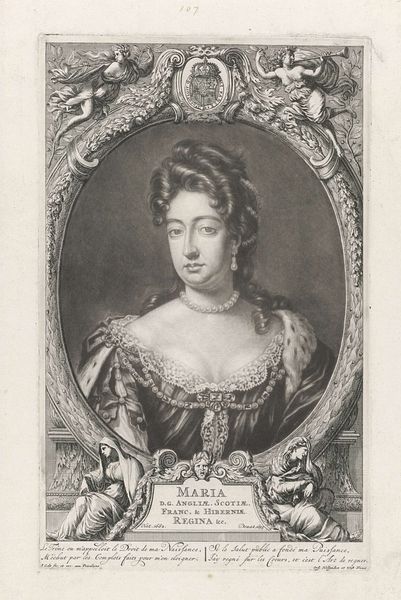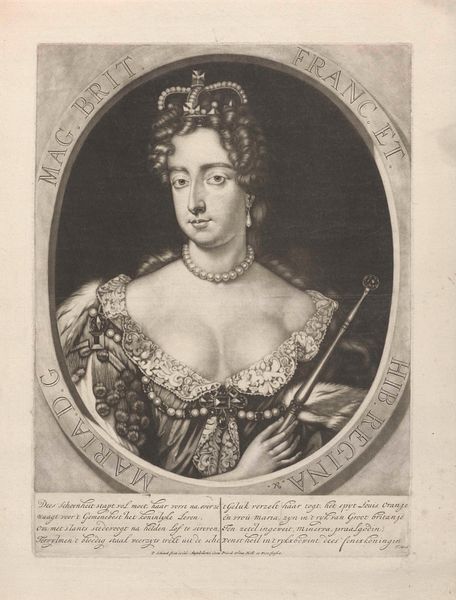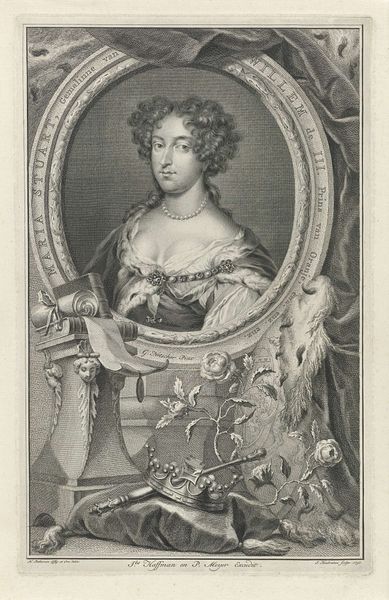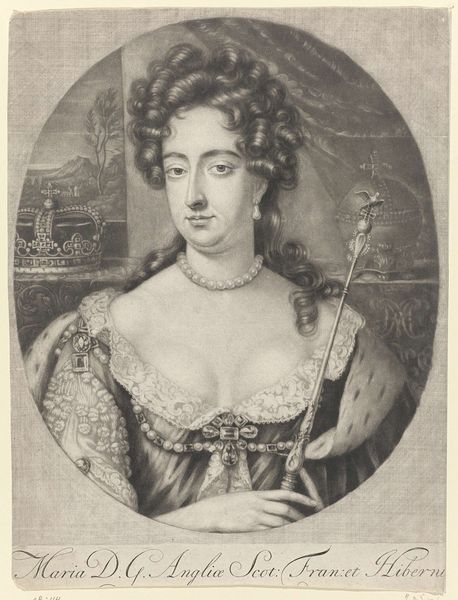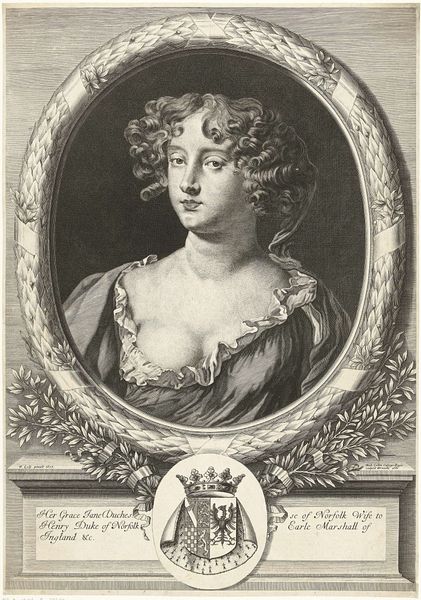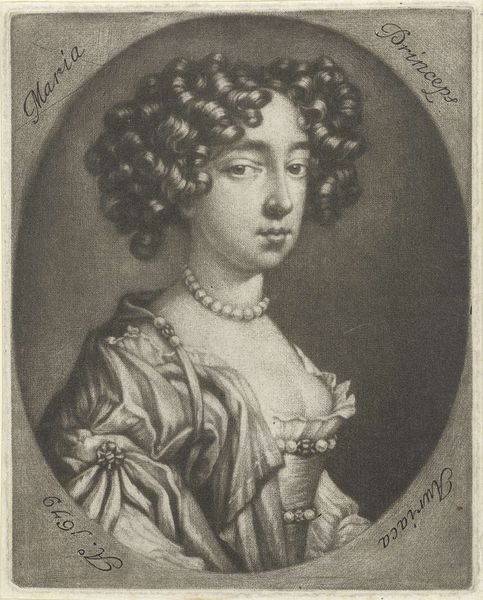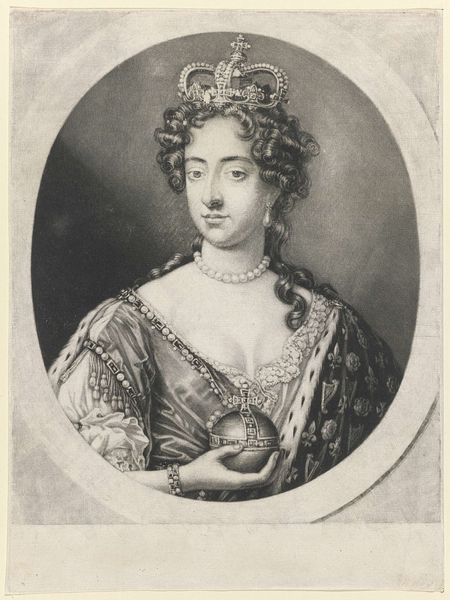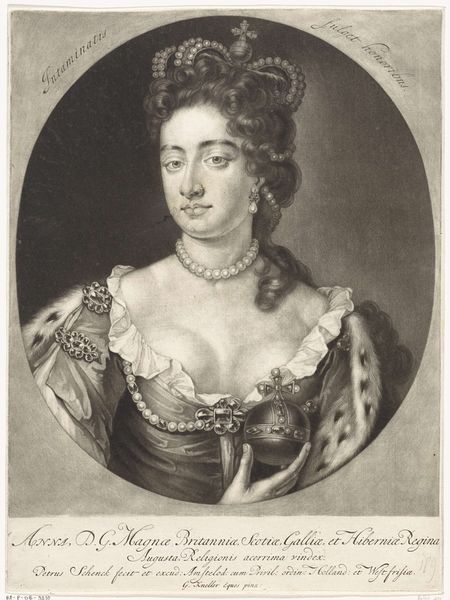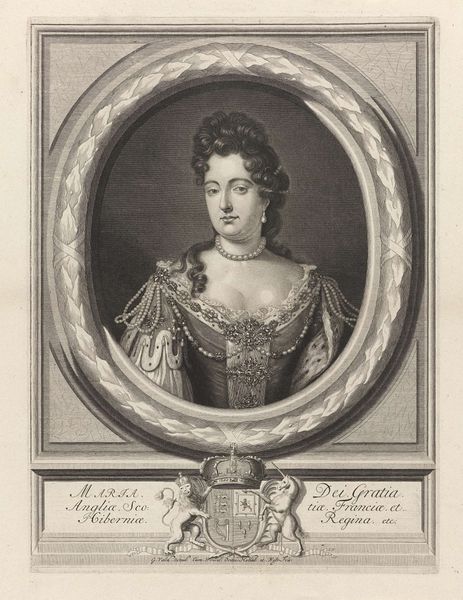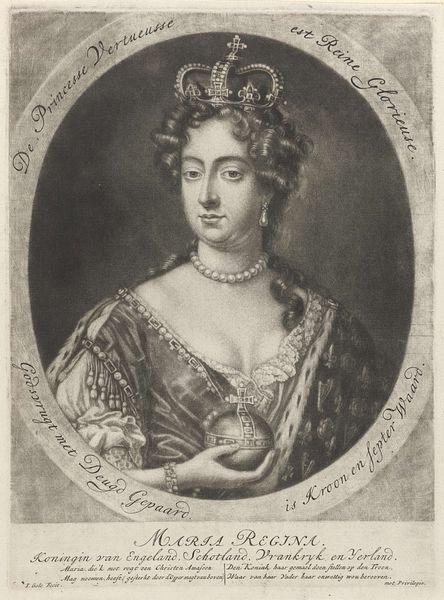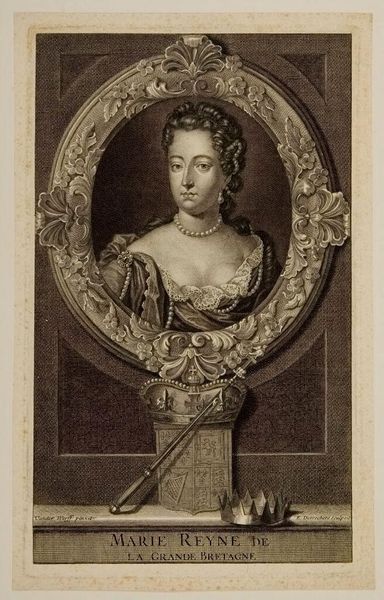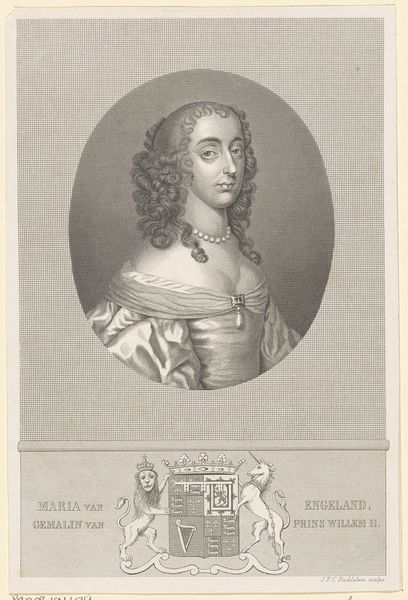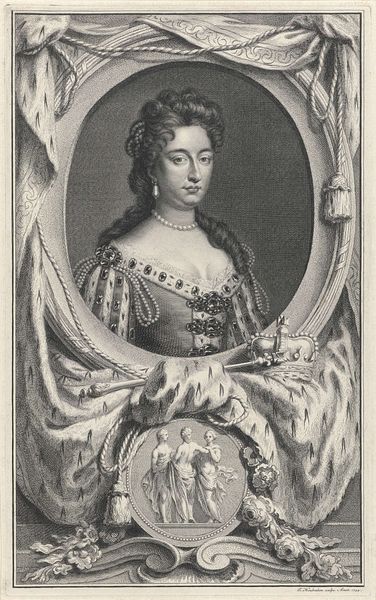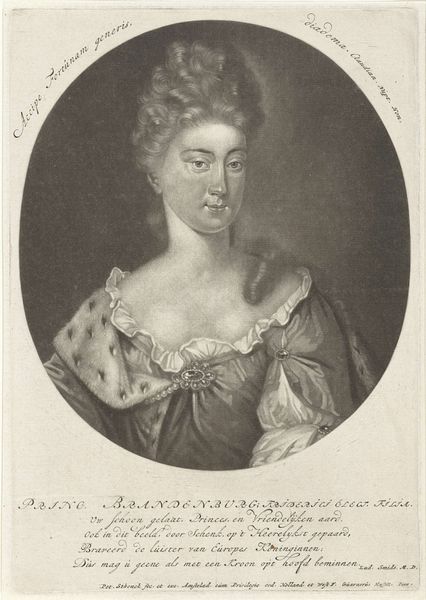
engraving
#
portrait
#
baroque
#
old engraving style
#
historical photography
#
portrait reference
#
history-painting
#
engraving
Dimensions: height 247 mm, width 185 mm
Copyright: Rijks Museum: Open Domain
Editor: So, this is "Portrait of Anna Stuart, Queen of England," an engraving by Jacob Gole, sometime between 1702 and 1724. The details in the lace and jewelry are amazing. I am really intrigued by the text framing the image. How do you interpret this work? Curator: This piece, while seemingly a straightforward royal portrait, offers a rich commentary on the construction of power and female identity within the British monarchy. Notice the strategic use of language. Framing Anna with "Je pourrais etre Reine" points towards her aspirations. The dutch, "myn Hoop met Glori Kroond," situates the english crown within European politics and society. How do you see that reflected in her presentation? Editor: She definitely exudes a sort of serene confidence. The symbols of royalty are there but feel understated, like she owns her power. Curator: Precisely. And the gaze? Not overtly commanding, but self-assured, almost inviting scrutiny, challenging the patriarchal expectations of leadership. Also, let's consider the engraving medium. It was a method to make images more widely accessible. Editor: Oh, that’s interesting! So the portrait could be disseminated to promote a specific image of Queen Anne? A carefully curated persona? Curator: Exactly! And for whom? The emerging middle class and european counterparts, potentially shaping perceptions of her reign and justifying her power through carefully crafted visual and textual narratives. What does that tell us about how images worked in legitimizing rule in the 18th century? Editor: I hadn't thought about it that way. It's not just a portrait; it's a political statement, carefully constructed and disseminated. I see how historical context shapes its meaning so profoundly. Curator: Absolutely, art isn't created in a vacuum, it always helps to ask "Who is being served and who is not". Considering that, our understanding changes completely.
Comments
No comments
Be the first to comment and join the conversation on the ultimate creative platform.
